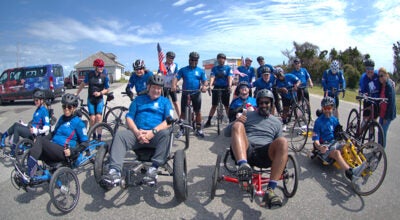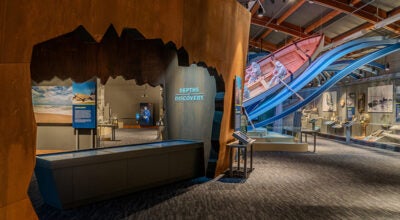Dare Commissioners Continue Support for watermen
Published 3:55 pm Wednesday, February 28, 2018
Dare’s Board of Commissioners continued to oppose changes to the definition of commercial watermen.
On Feb. 20, Commissioner Steve House reported on actions taken by the North Carolina Marine Fisheries Commission. On Feb. 14, during public comment, overwhelming opposition was voiced to the proposed definition. However, on Feb. 15, a substitute definition was accepted by the commission on a 5-4 vote.
The Dare Board unanimously supported a resolution “opposing adverse changes to the definition of a commercial fisherman.”
The resolution charges that the Marine Fisheries Commission effort “to redefine Commercial Fishing is a misguided attempt to fix something that is not broken and would jeopardize coastal communities whose economy and wellbeing are dependent upon both the full-time and part-time commercial fishermen and would have an adverse impact on young entrepreneurs wishing to enter the commercial fishing industry.”
On Feb. 15, the Marine Fisheries Commission in another 5-4 vote asked Gov. Roy Cooper to examine the current membership of the Marine Fisheries Commission and make changes to conform to the 1997 Fisheries Reform Act.
On Feb. 20, Dare County’s commissioners unanimously passed a resolution also asking Cooper to look at the current membership “and if need be to make changes to ensure that this Commission equitably balances commercial and recreational fishing interests in a way that does not benefit private interests or bring harm to others.”
The N.C. Marine Fisheries Commission asked the state’s General Assembly to make changes to criteria for the Standard Commercial Fishing License as adopted by the Commission. The definition criteria as stated in a media release from the Division of Marine Fisheries are:
(1) Develop a new commercial fishing license based on criteria to qualify current commercial license holders. Current license holders must demonstrate a minimal level of participation in the fishery as reported by landings (1,000 pounds of seafood products) or effort (15 trips) through the Division of Marine Fisheries’ Trip Ticket Program during any two out of five continuous calendar years.
(2) Only allow license transfers or assignments to members of the immediate family or corporation of a licensed commercial fisherman.
(3) Create a Crew License for individuals to apprentice with commercial fishermen for three years, after which time they would be eligible to purchase a standard commercial fishing license. The annual fee for the Crew License would be $100.
(4) Cap the pool at 100, and establish a new pool to receive licenses that are not renewed each year. Any non-renewed licenses would be transferred into the new pool and used to fill new commercial fishing license demand for qualified applicants. Inactive licenses may be reactivated for a fee.
(5) Inactive Standard Commercial Fishing Licenses that do not have requirements set forth by the legislature would go back into a special pool and these licenses may be reissued to the original holder without going through the Eligibility Pool.
(6) Create a Heritage Standard Commercial Fishing License that families may want to maintain that are inactive that may be maintained for $100 per year and may be reissued one time to a family member without going through the Eligibility Pool or any of the requirements listed above. If reissue is not wanted, a one-time fee of $100 will retire that license number.
(7) Graduation or completion of community colleges offering a commercial fishing program will be recognized as having served an apprenticeship eligible for an Eligibility Pool license.
In other business taken at the February 2018 meeting, the Marine Fisheries Commission voted to:
-Ask the Division of Marine Fisheries to temporarily stop issuing shellfish leases and accepting shellfish lease applications for waters from Bogue Sound south until the division can fully assess safety concerns and other regulatory needs. The commission asked for a report on this issue at its May 2018 meeting. Division Director Steve Murphey told the commission he would seek legal counsel to see if the division has authority for these actions.
-Approve a recreational cobia season of May 1 to Dec. 31, with a limit for private vessels of one fish per person, up to two fish per vessel from May 1 to May 31 and one fish per vessel June 1 through Dec. 31; the limit for for-hire vessels would be one fish per person up to four fish per vessel May 1 through Dec. 31. All measures include a 36-inch fork length minimum size limit. These management measures must be reviewed by the Atlantic States Marine Fisheries Commission Cobia Technical Committee and approved by the South Atlantic State/Federal Management Board.
-Ask the Division of Marine Fisheries to draft rules to make tarpon a no spear, no gaff and no possession fish.





